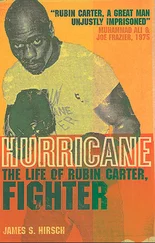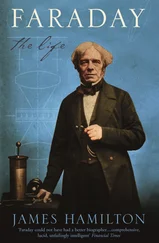“Not that I’m at liberty to divulge.”
“Oh, sure, not that you’re at liberty to divulge. Right.” Viola twists apart a pair of peanut butter crackers and leaves them sitting peanut-butter-side-up on her lap. She thinks. She says, “I would have thought it would be terrifying, but it’s more complicated than that. The man practically died in Robert’s arms, and there’s part of me that’s, like, envious. I’m trying to figure out how to articulate it.” The FBI agent sits with a patient expression on his face, while she tries to figure out how to articulate it. “It’s stupid,” Viola says. “Never mind.”
The FBI agent drives Viola to a large concrete building on the outskirts of Indianapolis. Inside the building are other men in suits like the FBI agent’s. Every time Viola and the FBI agent come to a door he punches in a code on a keypad and puts his eye in front of a scanner for a retinal scan. Each room they enter into gets colder, until Viola can see her breath. The walls of the last room are lined with drawers. The FBI agent pulls out a drawer.
“That’s not him,” Viola says.
The FBI agent pulls out another drawer.
“That’s him.”
Viola and the FBI agent both look at the body of the dead researcher. He looks like Santa Claus.
“What do I do?” Viola says.
The FBI agent shrugs. He starts to put his hand between her legs. Viola slaps his hand away.
“I mean, am I supposed to mourn him? Or am I supposed to feel some sort of, like, awe?”
“He has a family,” the FBI agent says, looking at the man’s chart. “We’re investigating the family, though we don’t suppose that will turn up anything.”
The FBI agent and Viola leave and get back in the car. On the radio an actress who had achieved success early in life talks about how it wasn’t easy on her, achieving success early in life. Viola suddenly feels sad and self-conscious. She wants to ask the FBI agent to turn the radio off, but she’s worried that he will intuit how sad and self-conscious she’s feeling right now. Then she asks him to turn off the radio anyway. The FBI agent says that the actress is one of his favorite actresses, but turns off the radio.
“It’s like I’ve got a hole inside me where I should have an assurance of love,” Viola says. “I look at other people going about their day, doing the kinds of things people do, shopping for groceries, driving cars, picking up and putting down objects of various sizes, and the only way I can imagine that they can keep doing all of that is that somewhere inside them they have an assurance of love. They don’t even have to think about it, because they know it’s there. But I think about it all the time, because it’s not.”
The FBI agent frowns at her.
“That doesn’t make any sense,” Viola says. “I don’t know why I said it.”
Then later, she says: “When I was first dating Robert, I used to steal things from him. Little things, things I was pretty sure he wouldn’t notice: pens, a tie he never wore, one or two out of about a bazillion wine glasses he had. The way I thought about it was this: He liked me then, sure, but there was absolutely no guarantee that he was going to keep liking me in the future. But if I had things of his, I knew they weren’t going anywhere.”
“Do you still have them? The stuff you stole?”
“One of the wine glasses, I think. I think the other stuff got lost the last time we moved.”
In the motel parking lot Viola and the FBI agent do an awkward kind of hug, and Viola goes to her car and leaves.
Robert crushes upa pill and stirs it into Viola’s coffee, then crushes up another and stirs it into his own coffee. The next day Robert crushes up a pill for Viola’s coffee, and one pill for his own coffee. It seems fairer this way. If there are any adverse unintended effects he should experience them as much as she does.
Later, he gets the idea to crush up several pills at once and mix them in with the sugar. Provided he first measures the amount of sugar in the sugar bowl, so that two spoonfuls of sugar (the amount Viola takes in her coffee) equal one pill. The crushed-up pills, white, fit in well enough with the sugar that Robert doubts even a very close inspection would alert someone to their presence. And, as Trey told him, the pills are absolutely tasteless. There is a danger, of course, that Viola might drink more than one cup of coffee in the morning while at home. But she rarely does this. Rarely, enough, for it to be a negligible concern? Robert resolves that if Viola does drink a second cup of coffee at home, Robert will drink a second cup as well.
There isa very difficult winter.
Robert receives a letterin the mail. The return address reads REDACTED. Robert takes the letter to his office and sits for some time with the letter before him on his desk. He feels the presentiment of a terrible guilt. He opens it, finally, with trembling hands. “Robert St. Clair,” the letter begins,
“Previously we would have assembled the text of this letter from words cut and pasted from magazines. It was our habit to do so, in cases similar to yours, long after the advent of the laser printer and its corresponding increase in the possibilities of anonymity. Partly, we liked the air of menace thereby created in the mind of the reader. Partly, we just liked the tradition of the thing. More than either of these reasons, however, we were attached to the way that the cut-and-paste letter allowed a new message, our message, to emerge from others’ words. Even now, although we have changed our technology of choice, the method remains the same: each word of this letter has been taken from some other text. This letter, and its message, existed long before human hands digitally cut and pasted it into the form you now see.
“Our voice is the voice of the people, Robert. The law we represent is an emergent law.
“We have seen what you are doing, Robert. We have observed you. We do not need to tell you what you will be charged with — are charged with, Robert, for the charges have already been filed, invisibly, and the court sits in invisible judgment. You know your guilt — and, as we are the court of the invisible, it is ultimately your knowledge, and not your actions, that must be judged.”
Robert hides the letter in the emptiness behind the bathroom sink. More letters arrive, daily, a series of terrible, unspecified threats. For some reason, the idea of Viola finding one of these letters fills him with dread — as though she would know, already, what he was guilty of.
Robert keeps a listof potential unintended adverse effects that he has experienced, or that he has noticed Viola exhibiting, since he began adding the drug that Trey gave him to their coffee each morning:
nervousness
fear of discovery
moodiness, irritability (Viola)
sudden spiraling moments of hopelessness
distraction
guilt
boredom (Viola)
lack of professional motivation
hours spent looking at vacation destinations on
the internet, or clicking on links for additional information about topics I don’t care about (celebrities, celebrities’ children, celebrities’ pregnancies, plane crashes)
sweating (noticeable)
difficulty sleeping
sleeping too much
difficulty dreaming, or difficulty in dreams
directionless anger
emptiness
emptiness
emptiness
Robert and his friendTrey get after-work drinks at the Slippery Noodle, the oldest jazz bar in Indianapolis. “Hey,” Trey says, gesturing towards the band. “Whaddayaknow? It’s our old friends.” Antonio waves at them from the stage. Hugo nods in their direction while performing an excellent solo on his trombone.
Читать дальше
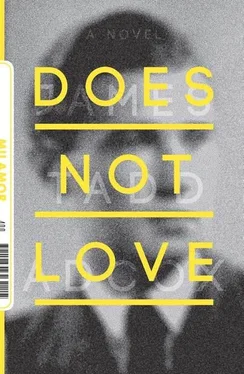

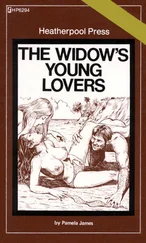
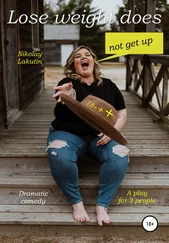
![Jakob Wassermann - Issue Does Not Exist],errors:{](/books/585068/jakob-wassermann-issue-does-not-exist-errors-thumb.webp)


